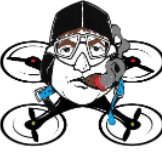-
Recently Browsing 0 members
- No registered users viewing this page.
Announcements
-
Topics
-
Latest posts...
-
4
Does Donald Trump Have Dementia?
No, he's totally lucid He is messing with YOUR mind. You will have dementia when he's done with you. -
22
Prawit Faces Scrutiny Over Possible Excessive Absences from House Sessions
Fat lot of good that will do. Old chap simply cannot keep track of time. -
3
Truth social is the future! Buy now while it's on sale.
https://www.independent.co.uk/news/world/americas/us-politics/donald-trump-truth-https://www.independent.co.uk/news/world/americas/us-politics/donald-trump-truth-social-stock-b2615865.htmlsocial-stock-b2615865.html -
13
Ideas for a low speed room fan?
You really should go and get some help 😞 Your condition appears to be deteriorating -
6
158 dems vote against bill to deport illegals, who commit sex crimes
Men who are liberals are WEIRD. 100% of the time -
52
Best Song of Past 100 Years? Your Vote?
Please stop boring me with your crappy music list. Here, watch THIS. A cult expert explains how Trump uses mind control on his cult followers. Cult basically operates like a cult leader. Stay away from cults, Gamma !! -
13
Ideas for a low speed room fan?
That mechanism is NOT from Lazada.... That thing, 4000 watts, is from China. I know this because I can read Chinese. I am fluent enough to read the essays by LinBiao. You remember LinBiao, don't you? Yeah, well....when I was much younger, at university, we had this book from Cornell, with an essay written by LinBiao, which we had to read in simplified Chinese, at the time, way back then.... This is why, whenever I buy something from Lazada, I can easily read the FINE PRINT.... So happy that I studied Chinese...back in the day.....in the very early 1970s...... IMPORTANT NOTE: That is a beautiful rug, you have there. I have been admiring it...MUCHO....for sure. I wish I had a rug/carpet like that in my house !!!!!!! -
1
Immigration Groups & Progressives Hope The Harris Border Policy is Temporary
Pretty sure it's just temporary. Have no fear progressives. -
65
Taxi Drivers in Pattaya to Lose Jobs Following Gang Attack on Russian Man - video
in a perfect world yes, but never in Pattaya -
1,363
5 year multiple entry DTV visa (Destination Thailand) from 2024-xx-xx
Thankfully, they don't ask for an official accomodation booking anymore either, so you can put down whatever you want in that form field as well. That was an annoying requirement when applying for a tourist visa. Not sure if they still require that with the tourist visa or if they got rid of it for that one too. -
24
Cheapo Funeral......where, and how much.
They still come round and take vitals twice a day! But seriously, mortuary storage. Nothing is free, and it seems you are paying for their failings! -
24
Cheapo Funeral......where, and how much.
Great response and matches what I have come across over the years. -
4
Thailand Introduces New Bill to Regulate Cannabis While Keeping It Legal
They want to raise more tax? Stop terrorizing retired expats. Instead, make recreational weed explicitly legal, the higher the THC level the better, closely regulate it from Thai farm to stoner, and then tax the flippin' puck out of it. Sorted! But that would be too logical wouldn't it? Instead drive it underground and don't tax it. -
2,589
ICE vs EV, the debate thread
A misleading post. Try quoting the percentage share of EV’s every month this year instead. -
1
Israeli Citizen Arrested Over Alleged Iranian Plot to Assassinate Netanyahu
Israeli Citizen Arrested Over Alleged Iranian Plot to Assassinate Netanyahu Fine him 5 dollars and send him on his way !
-
.png.3b3332cc2256ad0edbc2fe9404feeef0.png)







.thumb.jpg.bc523c85a8d558dbc282dca7a2e602c9.jpg)
-400.thumb.jpg.0ca958f9cd678464b41f3058bc084808.jpg)


Recommended Posts
Create an account or sign in to comment
You need to be a member in order to leave a comment
Create an account
Sign up for a new account in our community. It's easy!
Register a new accountSign in
Already have an account? Sign in here.
Sign In Now